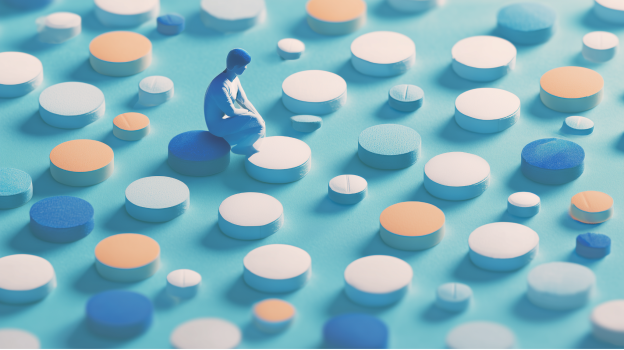 Overmedication is one of fastest rising problems in psychiatry field worldwide
Overmedication is one of fastest rising problems in psychiatry field worldwide
New findings challenge STAR*D, the 4,000-patient government study that shaped depression treatment guidelines for years. Reanalysis shows no clear benefit of follow-up antidepressants over placebo, and experts weigh in on the need for alternative treatment methods.
A new analysis published in the Journal of Clinical Psychopharmacology casts doubt on one of the most influential studies in modern psychiatry. When re-evaluated against randomized, placebo-controlled trials, most of the medication strategies used in the STAR*D trial, long seen as the gold standard for stepwise antidepressant care, show no measurable benefit beyond placebo.
The review compared STAR*D’s major treatment steps to real-world randomized controlled trial outcomes. Raising the SSRI dose, switching to another antidepressant, and adding common medications like bupropion or buspirone all failed to outperform placebo in blinded trials.
The only add-on with consistent clinical benefit was lithium – which is constantly prescribed less and is harder to access due to known toxic effects on, e.g., the thyroid gland and the kidneys.
“This study is a wake-up call,” said Dr. Hannah Nearney, clinical psychiatrist and UK Medical Director at Flow Neuroscience, a company that develops neuromodulation therapies for depression treatment. “Patients who don’t respond to the first antidepressant are often placed on a carousel of tweaks – higher doses, add-on pills, lateral switches – that produce side effects without providing real relief.”
An estimated 70% of patients with depression do not achieve remission with their first medication. Yet existing guidelines, based heavily on the STAR*D trial, still recommend drug modifications that, as reanalysis revealed, appear scientifically weak.
The new findings suggest these treatment steps may be driven more by expectation and placebo effects than by pharmacological mechanisms.
“This mirrors what we see every day in practice,” added Dr. Kultar Singh Garcha, NHS GP and Flow’s Global Medical Director. “Patients are stuck in trial-and-error cycles, not because we lack alternatives – but because those alternatives haven’t been prioritized in funding or regulation.”
One of those alternatives is transcranial direct current stimulation (tDCS) – a wearable, non-invasive brain stimulation technology backed by clinical trials. Flow Neuroscience, whose CE-certified device is already used in the NHS, says the findings highlight an urgent need to expand access to safe, proven, non-drug interventions.
“While tens of millions continue to cycle through barely effective drug combinations, validated neuromodulation therapies are still being overlooked or overregulated,” added Dr. Nearney. “We must give patients options grounded in science, and it must stay up-to-date. We’re living in a time where depression is becoming the next epidemic.”
The study’s authors argue for a rethinking of depression treatment models. As it claims, not all medications are ineffective – but the common practice of escalating doses or stacking drugs without placebo-controlled evidence may be doing more harm than good.
“This doesn’t mean medication should be abandoned,” Dr. Garcha concluded. “But if we’re going to recommend a new drug step, it has to outperform staying the course – not just look promising in an unblinded study. Otherwise, we’re replacing one flawed approach with another.”